

Queen Mab, Romeo and Juliet
Who is queen mab.
Mab is the queen of the fairies, a figure deeply rooted in English folklore. She is not a character in Shakespeare’s plays but is famous within his works because she is mentioned in Romeo and Juliet , as the subject of a speech by Romeo’s friend, Mercutio.
In English folklore Queen Mab is a mischief-making fairy who, unlike most other fairies, is not malevolent, but although she may be annoying, she makes mischief in a friendly, playful way most of the time. She is mentioned by several other writers from Michael Drayton in his mock-epic poem about fairies, Nymphidia , to Ben Jonson, Robert Herrick, John Milton, and later, the romantic poet, Shelley, in his major poem, Queen Mab .
Shakespeare took this tradition of Mab, Queen of the fairies, and evolved her to become Titania, the fairy queen as a major character in A Midsummer Night’s Dream .
Queen Mab in Romeo & Juliet
In Romeo and Juliet , Romeo is making himself miserable over a young woman, Rosaline , whom he has seen and, without having ever spoken to her, and she not even knowing of his existence, has fallen in love with her. He’s been paralysed by a common teenage affliction – lovesickness – and he can’t shake it off, even though his friends are making fun of him. He and his friends have intercepted a messenger with a list of people to be invited to a party at the Capulet house. Romeo, a Montague – a family feuding with the Capulets – has not been invited. Romeo sees that Rosaline’s name is on the list and he and his friends decide to gatecrash the party.
As they approach Capulet’s house Romeo’s friends continue to make fun of him about his moping, lovesick behaviour, brought on by his obsession with Rosaline and the dreams he is having about her. Mercutio tells him that the mischief-making Queen Mab has been infecting his dreams and that’s the cause of his affliction. “Oh, then,” he says, “I see Queen Mab hath been with you,” and he launches into a description of the legendary Queen Mab and how she operates to affect people’s dreams.
According to Mercutio Queen Mab is a tiny fairy who travels in an empty hazelnut shell, which she uses as a carriage, with spider’s legs for wheel spokes, driven by a grey-coated gnat and drawn by a team of tiny atoms. In her coach, she rides over the lips and noses of sleepers and fills their dreams with wild fantasies. If she’s in a foul mood she’s quite capable of creating venereal diseases for women who are dreaming of soft kisses. She can also induce innocent young virgins to have lascivious dreams.
But Queen Mab is very very small, in relation to the human world, and everything around her is tiny. Mercutio makes this point throughout. He’s suggesting that Romeo is being an idiot – all teenage boys experience this lovesickness and it’s nothing. It’s a minor issue, not even worth commenting on really. Rosaline is irrelevant. And of course, that proves to be true, as Romeo is very soon to meet Juliet, and to have the same response as he’s had to Rosaline. But in this case the young woman responds and it develops into something significant, and into a full-blown tragedy.
Queen Mab does not have a dramatic role in Shakespeare’s Romeo & Juliet, which could have functioned perfectly effectively without Mercutio’s speech, but it serves to underline Romeo’s immaturity in the context of relationships– a typical characteristic in a teenage boy. During the course of the play Romeo faces several challenges and experiences that force him to grow up, and we see that by the time of his death he has matured significantly.
Queen Mab Speech
Mercutio’s speech about Queen Mab is delivered in Act 1, Scene 4 of Romeo & Juliet. Here is Shakespeare’s original text of the Queen Mab speech:
O, then, I see Queen Mab hath been with you. She is the fairies’ midwife, and she comes In shape no bigger than an agate-stone On the fore-finger of an alderman, Drawn with a team of little atomies Athwart men’s noses as they lie asleep; Her wagon-spokes made of long spinners’ legs, The cover of the wings of grasshoppers, The traces of the smallest spider’s web, The collars of the moonshine’s watery beams, Her whip of cricket’s bone, the lash of film, Her wagoner a small grey-coated gnat, Not so big as a round little worm Prick’d from the lazy finger of a maid; Her chariot is an empty hazel-nut Made by the joiner squirrel or old grub, Time out o’ mind the fairies’ coachmakers. And in this state she gallops night by night Through lovers’ brains, and then they dream of love; O’er courtiers’ knees, that dream on court’sies straight, O’er lawyers’ fingers, who straight dream on fees, O’er ladies ‘ lips, who straight on kisses dream, Which oft the angry Mab with blisters plagues, Because their breaths with sweetmeats tainted are: Sometime she gallops o’er a courtier’s nose, And then dreams he of smelling out a suit; And sometime comes she with a tithe-pig’s tail Tickling a parson’s nose as a’ lies asleep, Then dreams, he of another benefice: Sometime she driveth o’er a soldier’s neck, And then dreams he of cutting foreign throats, Of breaches, ambuscadoes, Spanish blades, Of healths five-fathom deep; and then anon Drums in his ear, at which he starts and wakes, And being thus frighted swears a prayer or two And sleeps again. This is that very Mab That plats the manes of horses in the night, And bakes the elflocks in foul sluttish hairs, Which once untangled, much misfortune bodes: This is the hag, when maids lie on their backs, That presses them and learns them first to bear, Making them women of good carriage.
Watch the Queen Mab Speech in Context:
See All Romeo and Juliet Resources
Romeo and Juliet | Romeo and Juliet summary | Romeo and Juliet characters : Benvolio , Friar Laurence , Juliet , Mercutio , Queen Mab , Romeo , Tybalt , | Romeo and Juliet settings | Romeo and Juliet themes | Romeo and Juliet in modern English | Romeo and Juliet full text | Modern Romeo and Juliet ebook | Romeo and Juliet for kids ebooks | Romeo and Juliet quotes | Romeo and Juliet quote translations | Romeo and Juliet monologues | Romeo and Juliet soliloquies | Romeo and Juliet movies | Romeo and Juliet performance history
- Pinterest 0
Leave a Reply
Leave a reply cancel reply.
Your email address will not be published. Required fields are marked *
Save my name, email, and website in this browser for the next time I comment.

Romeo and Juliet
Act 1, scene 4 summary & analysis, william shakespeare.
More to Explore
The Tragedy of Romeo and Juliet

Program code and database © 2003-2024 George Mason University . All texts are in the public domain and can be used freely for any purpose. Privacy policy
Website navigation

Romeo and Juliet - Act 1, scene 4
Download romeo and juliet.
Last updated: Fri, Jul 31, 2015
- PDF Download as PDF
- DOC (for MS Word, Apple Pages, Open Office, etc.) without line numbers Download as DOC (for MS Word, Apple Pages, Open Office, etc.) without line numbers
- DOC (for MS Word, Apple Pages, Open Office, etc.) with line numbers Download as DOC (for MS Word, Apple Pages, Open Office, etc.) with line numbers
- HTML Download as HTML
- TXT Download as TXT
- XML Download as XML
- TEISimple XML (annotated with MorphAdorner for part-of-speech analysis) Download as TEISimple XML (annotated with MorphAdorner for part-of-speech analysis)

Navigate this work
Act 1, scene 4.
Romeo and Benvolio approach the Capulets’ party with their friend Mercutio and others, wearing the disguises customarily donned by “maskers.” Romeo is anxious because of an ominous dream. Mercutio mocks him with a speech about a dream-giving queen of fairies.
Stay connected
Find out what’s on, read our latest stories, and learn how you can get involved.
Enter ROMEO, MERCUTIO, BENVOLIO, with five or six Maskers, Torch-bearers, and others
What, shall this speech be spoke for our excuse? Or shall we on without a apology?
The date is out of such prolixity: We'll have no Cupid hoodwink'd with a scarf, Bearing a Tartar's painted bow of lath, Scaring the ladies like a crow-keeper; Nor no without-book prologue, faintly spoke After the prompter, for our entrance: But let them measure us by what they will; We'll measure them a measure, and be gone.
Give me a torch: I am not for this ambling; Being but heavy, I will bear the light.
Nay, gentle Romeo, we must have you dance.
Not I, believe me: you have dancing shoes With nimble soles: I have a soul of lead So stakes me to the ground I cannot move.
You are a lover; borrow Cupid's wings, And soar with them above a common bound.
I am too sore enpierced with his shaft To soar with his light feathers, and so bound, I cannot bound a pitch above dull woe: Under love's heavy burden do I sink.
And, to sink in it, should you burden love; Too great oppression for a tender thing.
Is love a tender thing? it is too rough, Too rude, too boisterous, and it pricks like thorn.
If love be rough with you, be rough with love; Prick love for pricking, and you beat love down. Give me a case to put my visage in: A visor for a visor! what care I What curious eye doth quote deformities? Here are the beetle brows shall blush for me.
Come, knock and enter; and no sooner in, But every man betake him to his legs.
A torch for me: let wantons light of heart Tickle the senseless rushes with their heels, For I am proverb'd with a grandsire phrase; I'll be a candle-holder, and look on. The game was ne'er so fair, and I am done.
Tut, dun's the mouse, the constable's own word: If thou art dun, we'll draw thee from the mire Of this sir-reverence love, wherein thou stick'st Up to the ears. Come, we burn daylight, ho!
Nay, that's not so.
I mean, sir, in delay We waste our lights in vain, like lamps by day. Take our good meaning, for our judgment sits Five times in that ere once in our five wits.
And we mean well in going to this mask; But 'tis no wit to go.
Why, may one ask?
I dream'd a dream to-night.
And so did I.
Well, what was yours?
That dreamers often lie.
In bed asleep, while they do dream things true.
O, then, I see Queen Mab hath been with you. She is the fairies' midwife, and she comes In shape no bigger than an agate-stone On the fore-finger of an alderman, Drawn with a team of little atomies Athwart men's noses as they lie asleep; Her wagon-spokes made of long spiders' legs, The cover of the wings of grasshoppers, The traces of the smallest spider's web, The collars of the moonshine's watery beams, Her whip of cricket's bone, the lash of film, Her wagoner a small grey-coated gnat, Not so big as a round little worm Prick'd from the lazy finger of a maid; Her chariot is an empty hazel-nut Made by the joiner squirrel or old grub, Time out o' mind the fairies' coachmakers. And in this state she gallops night by night Through lovers' brains, and then they dream of love; O'er courtiers' knees, that dream on court'sies straight, O'er lawyers' fingers, who straight dream on fees, O'er ladies ' lips, who straight on kisses dream, Which oft the angry Mab with blisters plagues, Because their breaths with sweetmeats tainted are: Sometime she gallops o'er a courtier's nose, And then dreams he of smelling out a suit; And sometime comes she with a tithe-pig's tail Tickling a parson's nose as a' lies asleep, Then dreams, he of another benefice: Sometime she driveth o'er a soldier's neck, And then dreams he of cutting foreign throats, Of breaches, ambuscadoes, Spanish blades, Of healths five-fathom deep; and then anon Drums in his ear, at which he starts and wakes, And being thus frighted swears a prayer or two And sleeps again. This is that very Mab That plats the manes of horses in the night, And bakes the elflocks in foul sluttish hairs, Which once untangled, much misfortune bodes: This is the hag, when maids lie on their backs, That presses them and learns them first to bear, Making them women of good carriage: This is she--
Peace, peace, Mercutio, peace! Thou talk'st of nothing.
True, I talk of dreams, Which are the children of an idle brain, Begot of nothing but vain fantasy, Which is as thin of substance as the air And more inconstant than the wind, who wooes Even now the frozen bosom of the north, And, being anger'd, puffs away from thence, Turning his face to the dew-dropping south.
This wind, you talk of, blows us from ourselves; Supper is done, and we shall come too late.
I fear, too early: for my mind misgives Some consequence yet hanging in the stars Shall bitterly begin his fearful date With this night's revels and expire the term Of a despised life closed in my breast By some vile forfeit of untimely death. But He, that hath the steerage of my course, Direct my sail! On, lusty gentlemen.
Strike, drum. Exeunt
Romeo and Juliet

Romeo and Juliet Shakescleare Translation
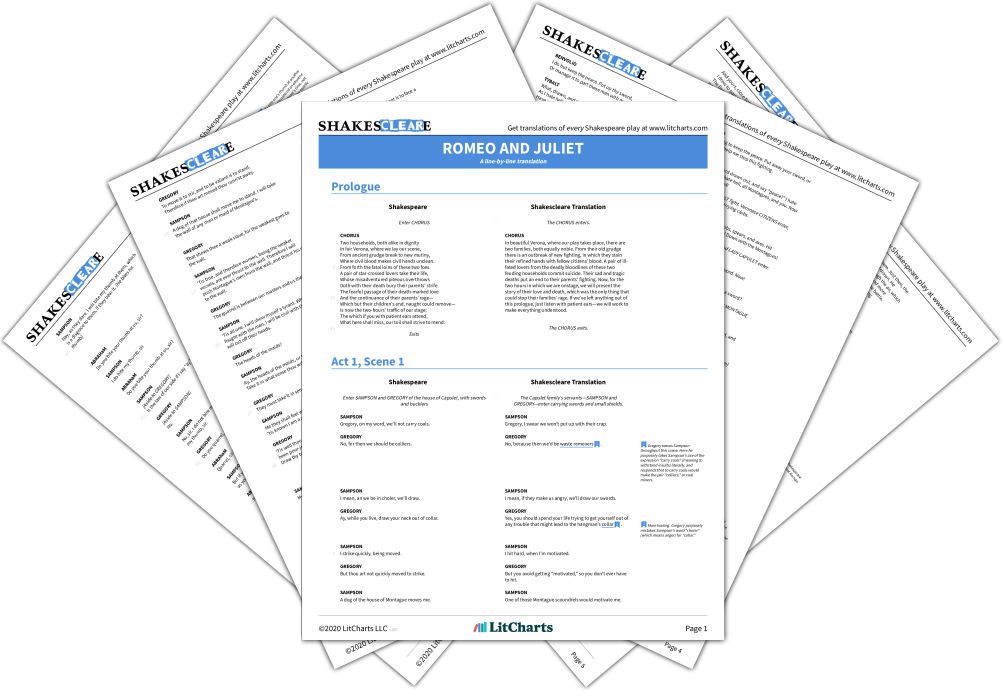
Romeo and Juliet Translation Act 1, Scene 4
ROMEO, MERCUTIO, and BENVOLIO enter wearing party masks. Five other men wearing party masks and carrying torches enter with them.
What, shall this speech be spoke for our excuse? Or shall we on without apology?
What excuse will we make? Or should we enter without apology?
The date is out of such prolixity. We’ll have no Cupid hoodwinked with a scarf, Bearing a Tartar’s painted bow of lath, Scaring the ladies like a crowkeeper, Nor no without-book prologue, faintly spoke After the prompter for our entrance. But let them measure us by what they will. We’ll measure them a measure and be gone.
It’s no longer fashionable to talk that much. We’re not going to announce our entrance with some guy blindfolded, dressed up as Cupid, and carrying a toy bow in order to frighten the ladies like some scarecrow. Nor will we introduce ourselves with a memorized speech. They can judge us however they want. We’ll dance for one dance, and then get out of there.
Give me a torch. I am not for this ambling. Being but heavy, I will bear the light.
Give me a torch. I don’t feel like dancing. Since I’m sad, I might as well carry the light.
Everything you need for every book you read.
Nay, gentle Romeo, we must have you dance.
No, sweet Romeo, you have to dance.
Not I, believe me. You have dancing shoes With nimble soles. I have a soul of lead So stakes me to the ground I cannot move.
Not me, believe me. You’ve got on dancing shoes with nimble soles. But my soul is made of lead so heavy that it anchors me to the ground and I can’t move.
You are a lover. Borrow Cupid’s wings And soar with them above a common bound.
You’re a lover. Borrow Cupid’s wings and use them to soar higher than the average man.
I am too sore enpiercèd with his shaft To soar with his light feathers, and so bound, I cannot bound a pitch above dull woe. Under love’s heavy burden do I sink.
I’ve been too strongly pierced by his arrow to soar. My wounded heart won’t let me escape my dull sadness. I am sinking under love’s heavy burden.
And to sink in it, should you burthen love— Too great oppression for a tender thing.
If you sink in love , then you’re burdening it. You’re putting too much weight on such a tender thing.
Is love a tender thing? It is too rough, Too rude, too boisterous, and it pricks like thorn.
Is love really so tender? To me it seems too rough, too rude, too unruly, and it pricks like a thorn.
If love be rough with you, be rough with love. Prick love for pricking, and you beat love down.— Give me a case to put my visage in! A visor for a visor. —What care I What curious eye doth cote deformities? Here are the beetle brows shall blush for me.
If love is rough with you, be rough with love. Prick love when it pricks you, and you’ll beat love down. Give me a mask to put over my face. A mask to cover that mask I call my face. What do I care if someone sees my flaws? Let the this mask, with its dark eyebrows, blush for me.
Come, knock and enter. And no sooner in But every man betake him to his legs.
Come on, let’s knock and go inside. And once inside, let’s all start dancing.
A torch for me. Let wantons light of heart Tickle the senseless rushes with their heels. For I am proverbed with a grandsire phrase, I’ll be a candle holder, and look on. The game was ne’er so fair, and I am done.
Give me a torch to carry. Let those with light hearts dance. There’s an old proverb that fits me perfectly: I’ll hold a torch and watch. The game looks like fun, but I’m done with it.
Tut, dun’s the mouse, the constable’s own word. If thou art dun, we’ll draw thee from the mire, Or—save your reverence—love, wherein thou stick’st Up to the ears. Come, we burn daylight, ho!
Come on, “ dun ” is the color of a timid mouse. You’re being as timid as a patrolman on night duty. If you’re a stick stuck in the mud, we’ll pull you out—pardon me for being rude— out of the love in which you’re stuck up to your ears. Come on, we’re wasting daylight.
Nay, that’s not so.
No, that’s wrong—it’s night.
I mean, sir, in delay. We waste our lights in vain, like lights by day. Take our good meaning, for our judgment sits Five times in that ere once in our five wits.
I mean, sir, that by delaying we’re wasting our torches, which is like wasting the sunshine during the day. Show your good judgment by taking what I say the way I mean it, which is five times more important than literally trusting your five senses.
And we mean well in going to this mask, But ’tis no wit to go.
We mean well by going to this party, but it’s not smart of us to go.
Why, may one ask?
Why, may I ask?
I dreamt a dream tonight.
I dreamed a dream last night.
And so did I.
Well, what was yours?
What was your dream?
That dreamers often lie.
I dreamed that dreamers often lie.
In bed asleep while they do dream things true.
They lie in bed while dreaming about true things.
Oh, then, I see Queen Mab hath been with you.
Oh, then I see Queen Mab has visited you.
Queen Mab, what’s she?
Queen Mab? Who’s she?
She is the fairies’ midwife, and she comes In shape no bigger than an agate stone On the forefinger of an alderman, Drawn with a team of little atomi Over men’s noses as they lie asleep. Her wagon spokes made of long spinners’ legs, The cover of the wings of grasshoppers, Her traces of the smallest spider’s web, Her collars of the moonshine’s watery beams, Her whip of cricket’s bone, the lash of film, Her wagoner a small gray-coated gnat, Not half so big as a round little worm Pricked from the lazy finger of a maid. Her chariot is an empty hazelnut Made by the joiner squirrel or old grub, Time out o’ mind the fairies’ coachmakers. And in this state she gallops night by night Through lovers’ brains, and then they dream of love; On courtiers’ knees, that dream on curtsies straight; O’er lawyers’ fingers, who straight dream on fees; O’er ladies’ lips, who straight on kisses dream, Which oft the angry Mab with blisters plagues, Because their breaths with sweetmeats tainted are. Sometime she gallops o’er a courtier’s nose, And then dreams he of smelling out a suit. And sometime comes she with a tithe-pig’s tail Tickling a parson’s nose as he lies asleep, Then he dreams of another benefice. Sometime she driveth o’er a soldier’s neck, And then dreams he of cutting foreign throats, Of breaches, ambuscadoes, Spanish blades, Of healths five fathom deep, and then anon Drums in his ear, at which he starts and wakes, And being thus frighted swears a prayer or two And sleeps again. This is that very Mab That plaits the manes of horses in the night And bakes the elflocks in foul sluttish hairs, Which once untangled, much misfortune bodes. This is the hag, when maids lie on their backs, That presses them and learns them first to bear, Making them women of good carriage. This is she—
She’s the fairies’ midwife, and is no bigger than the stone on the ring of a city councilman. She rides her carriage, which is pulled by tiny little creatures, over men’s noses as they lie sleeping. The wheel spokes of her carriage are made of spiders’ legs; its cover is made of grasshopper wings; and its harnesses are made of the smallest spiderwebs. The horse collars are made from moonbeams, while her whip is a single cobweb attached to a cricket bone. Her wagon driver is a tiny gnat wearing a gray coat that is not even half as large as a little round worm that comes from the finger of a lazy young girl. Her carriage is an empty hazelnut, made by a squirrel and an old worm, which have been the fairies’ carriage-builders for countless years. With this magnificent carriage she rides each night through the brains of lovers, who then dream about love. She rides across courtiers’ knees, who then dream about bowing and curtsying. She rides over lawyers’ fingers, who then dream about their fees. She rides over ladies’ lips, and they immediately dream of kisses. But Queen Mab often puts blisters on their lips because their breath smells of candy, which angers her. Sometimes she rides over a courtier’s nose, and he dreams of sniffing out a way to make some money. Sometimes she tickles a priest’s nose with the tail of pig given as a tithe to the church, and he dreams of getting a high-paid church position. Sometimes she drives over a soldier’s neck, and he dreams of cutting the throats of foreigners, of breaking through fortifications, of ambushes, of the finest-quality Spanish swords, and of huge mugs of alcohol before suddenly waking, frightened, by the sound of drums in his ears. Then he says a prayer or two and goes back to sleep. Mab is the one who tangles the hair of horses’ manes at night and then hardens the tangles in the foul, dirty hairs; tangles which, if you undo them, bring bad luck. Mab is the hag who gives dreams of sex to virgins and teaches them how to bear the weight of a lover and to bear a child. She’s the one—
Peace, peace, Mercutio, peace! Thou talk’st of nothing.
Calm down, calm down! Mercutio, be calm. You’re talking about nothing.
True, I talk of dreams, Which are the children of an idle brain, Begot of nothing but vain fantasy, Which is as thin of substance as the air And more inconstant than the wind, who woos Even now the frozen bosom of the north, And, being angered, puffs away from thence, Turning his face to the dew-dropping south.
True. I’m talking about dreams, which are produced by a brain that’s doing nothing. Dreams are born of no more than empty fantasy, which lack substance like air, and are more unpredictable than the wind, which can blow on the frozen north and then suddenly get angry and blow south.
This wind you talk of, blows us from ourselves. Supper is done, and we shall come too late.
This wind you’re talking about is blowing us off course. Dinner is already over. We’re going to get there too late.
I fear too early, for my mind misgives Some consequence yet hanging in the stars Shall bitterly begin his fearful date With this night’s revels, and expire the term Of a despisèd life closed in my breast By some vile forfeit of untimely death. But he that hath the steerage of my course, Direct my sail. On, lusty gentlemen.
I fear we’re going to arrive too early. I have a feeling this party tonight is fated to set in motion some awful destiny that will result in my own untimely death. But whoever’s in charge of my fate can steer me where they want. Let’s go, my lusty friends!
Strike, drum.
Bang the drum!
March about the stage and exit.
They march around the stage and exit.

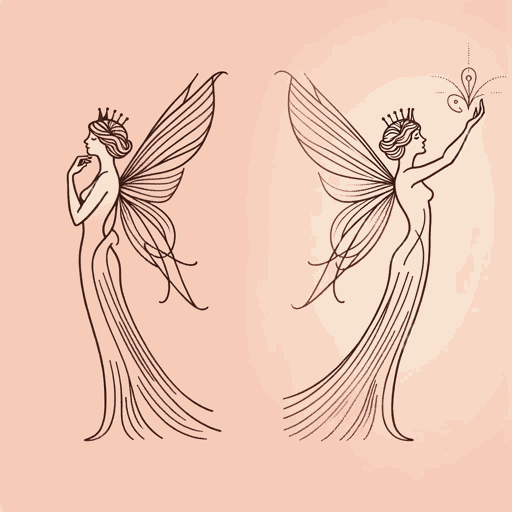
28 pages • 56 minutes read
Queen Mab: A Philosophical Poem
A modern alternative to SparkNotes and CliffsNotes, SuperSummary offers high-quality Study Guides with detailed chapter summaries and analysis of major themes, characters, and more.
Book Summaries & Analyses
Symbols & Motifs
Literary Devices
Further Reading & Resources
Discussion Questions
Summary and Study Guide
“Queen Mab” is an epic , utopian poem by the English Romantic poet Percy Bysshe Shelley. Shelley is most well-known for his epic masterpiece, “Prometheus Unbound,” and his poems “Ozymandias,” “Ode to the West Wind,” and “The Mask of Anarchy.” Written when Shelley was only 18 years old, “Queen Mab” was initially published anonymously in 1813 due to its radical political content. However, after the poem was illegally distributed and gained popularity, Shelley published it formally in 1816 after making edits to soften the poem’s radical message. Shelley dedicated this poem to Harriet Westbrook Shelley, his first wife. Their daughter Ianthe shares the same name as the poem’s heroine.
The poem includes nine cantos Shelley called books, which chronicle the spiritual journey of Ianthe. After Ianthe falls asleep, she is visited by the powerful folkloric fairy Queen Mab, who casts a spell to allow Ianthe’s soul to separate from her body. As they journey through the cosmos, Queen Mab shows Ianthe’s spirit a vision of the past, present, and future of humankind. Through Queen Mab’s commentary on the past and present, Shelley disparages civilization, criticizing wealth and social inequality, industrialization, religion , and traditional morality. A phantom, Ahasuerus, presents an especially pointed critique of Christianity. After studying the past errors of humanity, Queen Mab shows the spirit a hopeful view of the future, proclaiming that an earthly utopia will be realized when humans understand what true virtue is and learn how to live harmoniously with the natural world . Ianthe’s soul returns to her body, and she awakens at the poem’s end.
Get access to this full Study Guide and much more!
- 7,400+ In-Depth Study Guides
- 4,900+ Quick-Read Plot Summaries
- Downloadable PDFs
Citation note: The first number in each in-text citation refers to the canto/book from which the quote is taken. The numbers after the period indicate the line number. For example, (Line 3.45) refers to line 45 in book 3 .
Poet Biography
The SuperSummary difference
- 8x more resources than SparkNotes and CliffsNotes combined
- Study Guides you won ' t find anywhere else
- 100+ new titles every month
Percy Bysshe Shelley was born in 1792 in West Sussex, England, to a wealthy family. Shelley was precocious and rambunctious, impressive for his memory and gift for languages. He went to school at Eton, where he was viciously bullied, and then enrolled at Oxford, though he was expelled after writing a radical political tract titled “The Necessity of Atheism."
In 1811, Shelley married 16-year-old Harriet Westbrook, which caused personal chaos for Shelley and ended in tragedy . The fathers of both Shelley and Harriet cut off the couple; Shelley’s father, a Member of Parliament, believed Shelley had married beneath him. During this time, Shelley became engaged in political protests and revolutionary action in support of the cause of Irish independence and other political movements. He and Westbrook struggled financially and moved frequently. Shelley and Westbrook split up in 1814, after their daughter Ianthe was born.
Due to difficulties with his father, Shelley sought mentorship and formed a kinship with William Godwin, a famous English philosopher. His close relationship with Godwin led him to meet Godwin’s 16-year-old daughter Mary, who was also the daughter of famed feminist revolutionary Mary Wollstonecraft. The two started a relationship while Shelley was still married to Harriet; after Harriet’s tragic death by drowning in 1816, Shelley and Mary Godwin married.
Harriet’s death prompted a period of deep marital, financial, and familial stress; the Shelleys were in a complex open marriage with Mary’s sister Claire and Shelley’s fellow Oxford radical Thomas Jefferson Hogg, Mary suffered a stillbirth, and gave birth to the couple’s first child. At the same time, this time was also artistically fruitful. Percy Shelley developed friendships with other noted Romantic poets, including Lord Byron and John Keats, while Mary Shelley wrote the novel Frankenstein , which was inspired by a dream she had during a trip to Geneva, Switzerland, with Percy Shelley and Lord Byron. The Shelleys eventually left England and moved to Italy. In Italy, Percy Shelley wrote his greatest works of lyric poetry. He died in 1822 at the age of 29 in a boating accident in Italy.
Shelley, Percey Bysshe. “ Queen Mab ” 1813. The University of Pennsylvania .

Don't Miss Out!
Access Study Guide Now
Related Titles
By Percy Bysshe Shelley

A Defence of Poetry
Percy Bysshe Shelley
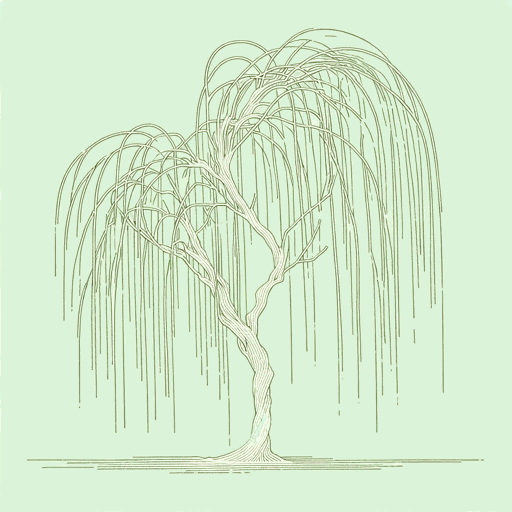
Alastor; or, The Spirit of Solitude

Mont Blanc: Lines Written in the Vale of Chamouni

Ode to the West Wind

Prometheus Unbound
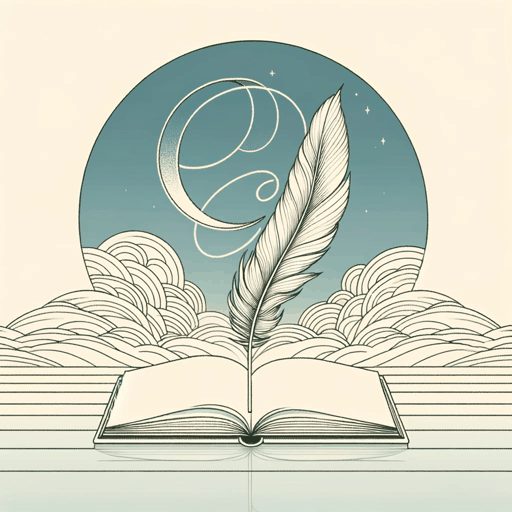
The Masque of Anarchy

The Triumph of Life
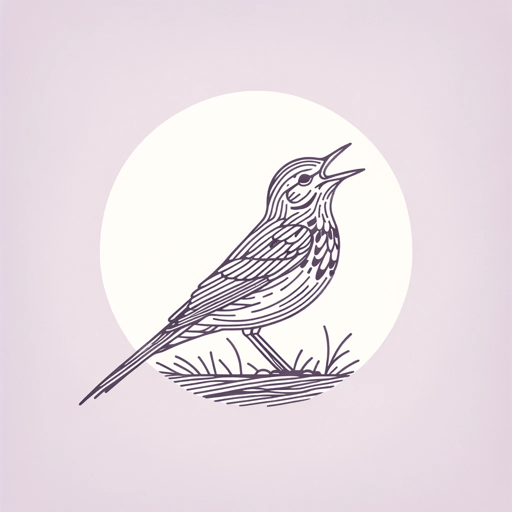
To a Skylark
Featured Collections
British Literature
View Collection
Challenging Authority
Christian Literature
Memorial Day Reads
Military Reads
Mortality & Death
Philosophy, Logic, & Ethics
Politics & Government
Religion & Spirituality
Romanticism / Romantic Period
Romantic Poetry
Science & Nature
my S hakespeare
Sign in with:
Or use e-mail:.
my R omeo &J uliet
- Using myShakespeare
- Direct Links to Videos
- Animated Summary
- Quick Study
- Shakespeare's Life
- Elizabethan Theater
- Love and War in Shakespeare's Time
- Prologue Song
- The Cast Song
- Queen Mab Song
- The Balcony Song
- Hit List Song
Q ueen M ab S ong
Myshakespeare | romeo and juliet 1.4 queen mab song.
- For Teachers
- Privacy Policy
- Terms of Service

IMAGES
VIDEO
COMMENTS
A summary of Act 1: Scene 4 in William Shakespeare's Romeo and Juliet. Learn exactly what happened in this chapter, scene, or section of Romeo and Juliet and what it means. Perfect for acing essays, tests, and quizzes, as well as for writing lesson plans. ... Mercutio's Queen Mab speech is one of the most famous in the play. Queen Mab, who ...
Queen Mab Speech. Mercutio's speech about Queen Mab is delivered in Act 1, Scene 4 of Romeo & Juliet. Here is Shakespeare's original text of the Queen Mab speech: O, then, I see Queen Mab hath been with you. Time out o' mind the fairies' coachmakers. And sleeps again.
Mercutio says he had a dream the night before, too—he and Romeo have both been visited by "Queen Mab." Benvolio asks who Queen Mab is, and Mercutio, in a lengthy speech, spins a fanciful tale about the "fairies' midwife" who comes to people while they sleep on her hazelnut chariot to make them dream of sweet things and to play little pranks on those who make her jealous or cross.
In this speech from Act 1, Scene 4 of Romeo and Juliet, Mercutio tells of Queen Mab, a fairy who stirs dreams. While the speech starts in good fun, Mercutio's language and tone take a dark turn.
Made by the joiner squirrel or old grub, 70 Time out o' mind the fairies' coachmakers. And in this state she gallops night by night. Through lovers' brains, and then they dream of love; On courtiers' knees, that dream on curtsies straight; O'er lawyers' fingers, who straight dream on fees;
Queen Mab Description. Mercutio's speech appears in Act 1, Scene 4 of "Romeo and Juliet" when he learns that Romeo takes his dreams as the truth. They are about to gatecrash the party organized by ...
Detailed Summary. Romeo, Mercutio, Benvolio, and several of their associates enter, donning party masks and carrying torches. They intend to infiltrate the Capulets' feast, and Romeo expresses concern about their entrance. Benvolio assures him it won't be an issue and reminds Romeo they don't plan on staying long.
His "Queen Mab" speech in this scene is particularly famous. Benvolio. Benvolio is the most practical of the party crashers: he tries to figure out how to actually get into the Capulet estate. Scene Summary: Romeo, Benvolio, and their friend Mercutio arrive at the Capulet party in style. Romeo tells his friends that he doesn't plan on ...
Mercutio jests with Romeo, musing that Mab, the bringer of dreams, has visited his lovesick friend. At the beginning of Mercutio's speech Mab seems a whimsical creation, much like the fairies in A Midsummer Night's Dream. But we soon realize that Mercutio's Queen Mab is a malevolent hag who punishes "unchaste" ladies by blistering their lips ...
Detailed Summary of Act 1, Scene 4 Page Index: Enter Romeo, Mercutio, Benvolio, with five or six Maskers, Torch-bearers, and others: ... Mercutio's "Queen Mab" speech: Mercutio's famous "Queen Mab" speech is movtivated by Romeo's stubborn refusal to join in the fun that Benvolio and Mercutio have planned. In Franco Zeferelli's often-shown film ...
Scene 4. Romeo, Benvolio, and their friend Mercutio arrive at the Capulet party in style. Romeo tells his friends that he doesn't plan on dancing tonight — he's too sad. Plus, he had a dream the night before that gave him a bad feeling about the party. Mercutio teasingly thinks his dream is the result of a visit from Queen Mab.
O, then, I see Queen Mab hath been with you. She is the fairies' midwife, and she comes In shape no bigger than an agate-stone 555 On the fore-finger of an alderman, Drawn with a team of little atomies Athwart men's noses as they lie asleep; Her wagon-spokes made of long spiders' legs, The cover of the wings of grasshoppers, 560
Act 1, scene 4. ⌜ Scene 4 ⌝. Synopsis: Romeo and Benvolio approach the Capulets' party with their friend Mercutio and others, wearing the disguises customarily donned by "maskers.". Romeo is anxious because of an ominous dream. Mercutio mocks him with a speech about a dream-giving queen of fairies. Enter Romeo, Mercutio, Benvolio ...
Mab depicts a calm winter night that turns into a stormy day followed by a night of battle that leaves soldiers dead and a city burned. War, says Mab, comes not from evil in human nature but from ...
O, then, I see Queen Mab hath been with you. She is the fairies' midwife, and she comes In shape no bigger than an agate-stone On the fore-finger of an alderman, Drawn with a team of little atomies Athwart men's noses as they lie asleep; Her wagon-spokes made of long spiders' legs, The cover of the wings of grasshoppers,
Come, we burn daylight, ho! MERCUTIO. Come on, "dun" is the color of a timid mouse. You're being as timid as a patrolman on night duty. If you're a stick stuck in the mud, we'll pull you out—pardon me for being rude— out of the love in which you're stuck up to your ears. Come on, we're wasting daylight.
Summary. Scholars are now generally agreed that Q1 of Romeo and Juliet (1597) is a bad Quarto which represents a memorial reconstruction of the play, and that Q2 (1599) is a good Quarto based at first or second hand on Shakespeare's foul papers. If this is so, however, we must then recognize that 'the bad text seems a good deal better and ...
Summary and Study Guide. Overview "Queen Mab" is an epic, utopian poem by the English Romantic poet Percy Bysshe Shelley. Shelley is most well-known for his epic masterpiece, "Prometheus Unbound," and his poems "Ozymandias," "Ode to the West Wind," and "The Mask of Anarchy." Written when Shelley was only 18 years old ...
ROMEO: In bed asleep while they do dream things true. MERCUTIO: Oh, then, I see Queen Mab hath been with you. BENVOLIO: Queen Mab, what's she [?] MERCUTIO: She is the fairies' midwife, and she comes. In shape no bigger than an agate stone. On the forefinger of an alderman, Drawn with a team of little atomi.
Queen Mab, poem in nine cantos by Percy Bysshe Shelley, published in 1813.Shelley's first major poem—written in blank verse—is a utopian political epic that exposes as social evils such institutions as monarchy, commerce, and religion and that describes a visionary future in which humanity is liberated from all such vices.Queen Mab, ruler of the fairies, takes the spirit of Ianthe (the ...
A pair of star-crossed lovers take their life, Whose misadventured piteous overthrows. Doth with their death bury their parents' strife. The fearful passage of their death-marked love. 10 And the continuance of their parents' rage, Which, but their children's end, naught could remove, Is now the two hours' traffic of our stage—.
M. S. myShakespeare | Romeo and Juliet 1.4 Queen Mab Song. Share to Google Classroom. Act 1, Scene 4 Queen Mab Song Act 1, Scene 5. Allusion Song Context Discussion Interview Language Performance.
A summary of Symbols in William Shakespeare's Romeo and Juliet. Search all ... Queen Mab. In Act 1, scene 4, Mercutio delivers a dazzling speech about the fairy Queen Mab, who rides through the night on her tiny wagon bringing dreams to sleepers. One of the most noteworthy aspects of Queen Mab's ride is that the dreams she brings generally do ...